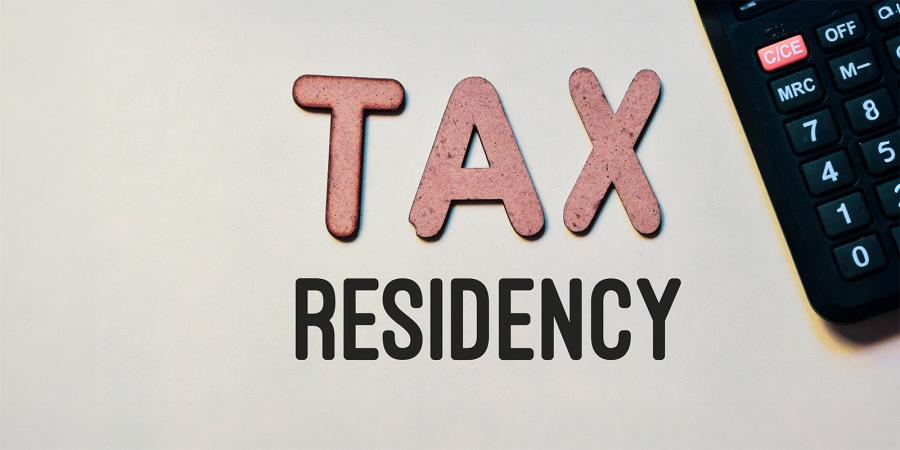Now Reading: Tax Residency Rules in the UAE: Criteria and Benefits for 2025
-
01
Tax Residency Rules in the UAE: Criteria and Benefits for 2025
Tax Residency Rules in the UAE: Criteria and Benefits for 2025

Table of Contents
Tax Residency Rules in the UAE: The United Arab Emirates (UAE) continues to cement its position as a global hub for business, investment, and talent. Its strategic location, world-class infrastructure, and traditionally tax-efficient environment have long attracted individuals and corporations worldwide. As the nation’s fiscal landscape evolves, particularly with the relatively recent introduction of corporate tax, understanding the nuances of tax residency has become more crucial than ever. For those considering the UAE as a base in 2025, grasping the criteria for tax residency and the associated benefits is paramount.
This guide delves into the UAE’s tax residency rules for both individuals and legal entities, the advantages of obtaining such status, and key considerations, especially for U.S. citizens.
What Does it Mean to Be a Tax Resident in the UAE?

Tax residency is a status that determines which country has the right to tax an individual’s or a company’s income. For the UAE, establishing tax residency is vital for several reasons: it allows individuals and companies to leverage the UAE’s extensive network of Double Taxation Avoidance Agreements (DTAAs), potentially minimizing their global tax liabilities. Furthermore, it clarifies an entity’s obligations under the UAE’s new corporate tax regime.
The UAE Federal Tax Authority (FTA) is the competent body responsible for issuing Tax Residency Certificates (TRCs), which serve as official proof of an individual’s or company’s tax resident status.
Criteria for Individual Tax Residency in the UAE (2025)

The framework for determining individual tax residency in the UAE is primarily outlined in Cabinet Decision No. 85 of 2022. For 2025, the criteria are as follows:
- The 183-Day Rule (Primary Test): An individual is generally considered a tax resident if they are physically present in the UAE for 183 days or more during a consecutive 12-month period. This is the most straightforward criterion.
- The 90-Day Rule (Conditional Test): Even if an individual does not meet the 183-day threshold, they may still qualify as a tax resident if they are physically present in the UAE for 90 days or more in a consecutive 12-month period AND meet one of the following conditions:
- Are a UAE citizen.
- Are a citizen of a Gulf Cooperation Council (GCC) member state and hold a permanent place of residence in the UAE or carry out a job in the UAE.
- Are a non-UAE/GCC citizen who:
- Holds a permanent place of residence in the UAE (e.g., owns residential property or has a long-term rental contract).
- Carries out a job or conducts a business in the UAE.
Key Definitions:
- Permanent Place of Residence: This refers to any form of housing available to an individual for continuous use, whether owned, rented, or otherwise possessed.
- Job: An employment contract with a UAE-based employer (governmental or private sector).
- Business: Any economic activity conducted regularly, independently, and professionally by an individual.
Criteria for Corporate Tax Residency in the UAE (2025)
For legal entities, tax residency is critical, especially given the UAE Corporate Tax law effective from June 1, 2023, which imposes a 9% tax on taxable profits exceeding AED 375,000. A legal person is considered a tax resident in the UAE if:
- It is incorporated, formed, or otherwise established or recognized in the UAE. This includes companies established under mainland, free zone, or offshore regulations. However, branches of foreign companies registered in the UAE are generally not considered tax residents unless effectively managed and controlled from within the UAE.
- It is considered a tax resident under any other applicable legislation in the UAE, which typically means its place of effective management and control is in the UAE.
Understanding these criteria is essential for businesses to determine their corporate tax obligations. Further details can often be found on the :
Key Benefits of UAE Tax Residency in 2025
Obtaining UAE tax resident status offers several compelling advantages:
- Zero Personal Income Tax: The UAE does not levy any income tax on individuals. This remains a primary attraction for professionals and high-net-worth individuals seeking to optimize their personal finances.
- Access to Double Taxation Avoidance Agreements (DTAAs): The UAE has an extensive network of over 140 DTAAs with other countries. A TRC allows residents to avail the benefits of these treaties, preventing them from being taxed on the same income in both the UAE and their country of origin or another country where they may have economic interests.
- Strategic Global Hub: The UAE’s geographical location, connecting East and West, coupled with its advanced infrastructure, makes it an ideal base for international business operations.
- Stable and Pro-Business Environment: The nation offers political stability, a robust legal framework (continuously being updated), and a welcoming environment for foreign investment and entrepreneurship.
- High Quality of Life: World-class amenities, a diverse cultural scene, excellent healthcare, and education facilities contribute to a high standard of living.
Special Considerations for U.S. Citizens
While the UAE offers significant tax advantages, U.S. citizens and Green Card holders face a unique situation due to the United States’ citizenship-based taxation system.
- Worldwide Income Taxation: U.S. citizens are required to report and potentially pay U.S. federal income tax on their worldwide income, regardless of where they reside. Obtaining UAE tax residency does not negate this U.S. tax obligation.
- Foreign Earned Income Exclusion (FEIE): U.S. citizens residing in the UAE may be eligible for the FEIE, which allows them to exclude a certain amount of foreign-earned income from U.S. taxation if they meet specific requirements (such as the Physical Presence Test or Bona Fide Residence Test).
- Foreign Tax Credit (FTC): If a U.S. citizen pays income tax to a foreign country, they may be able to claim a foreign tax credit against their U.S. tax liability. However, since the UAE does not have personal income tax, this is generally not applicable for income earned solely within the UAE.
- UAE-USA Tax Treaty: It’s crucial to note that the “Agreement between the United States of America and the United Arab Emirates for the Reciprocal Exemption with Respect to Taxes on Income Derived from the International Operation of Ships and Aircraft” is very limited in scope. It primarily addresses income from international shipping and air transport and is not a comprehensive DTAA that covers all types of income like those the UAE has with many other nations. Therefore, U.S. citizens generally cannot rely on this treaty to avoid U.S. tax on most types of personal or business income earned in the UAE.
- Reporting Obligations: U.S. citizens must comply with various reporting requirements, including the Foreign Bank Account Report (FBAR) for foreign financial accounts and FATCA (Foreign Account Tax Compliance Act) disclosures. For detailed information, U.S. citizens should refer to the
Obtaining a Tax Residency Certificate (TRC) in the UAE

The process for obtaining a TRC typically involves submitting an application to the Federal Tax Authority (FTA) through their online portal. General requirements include:
- Copy of passport and valid UAE residency visa.
- Copy of Emirates ID.
- A certified entry and exit report from the Federal Authority for Identity and Citizenship or a local immigration department.
- A tenancy contract (Ejari) or proof of permanent place of residence (e.g., title deed, utility bills).
- Bank statements for a specified period (usually six months) from a UAE bank.
- Proof of income or source of income in the UAE (e.g., employment contract, trade license for business owners).
Specific requirements can vary, and applicants should always refer to the latest guidelines provided by the FTA.
The Evolving Landscape: Looking Ahead
The UAE’s commitment to creating a transparent and internationally compliant tax environment, while still offering significant advantages, makes it an attractive proposition. The introduction of corporate tax marked a significant step in this evolution, and understanding tax residency is central to navigating this new framework.
Individuals and businesses considering a move to or increased operations in the UAE in 2025 should carefully review the residency criteria and seek professional advice. Tax laws are complex and subject to change, and personal circumstances can greatly influence the best course of action. Consulting with tax advisors familiar with both UAE and home country (e.g., U.S.) tax laws is essential for effective planning and compliance.
As the UAE continues to innovate and grow, its tax residency framework will remain a key element for those looking to call this dynamic nation their home or business base.
WATCH MORE: https://www.youtube.com/watch?v=0FLrqpkckBk&pp=0gcJCdgAo7VqN5tD
READ MORE: Navigating VAT in UAE Real Estate Transactions: A 2025 Overview






















